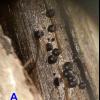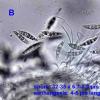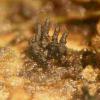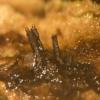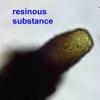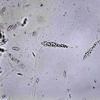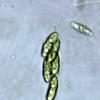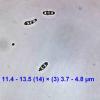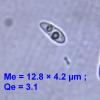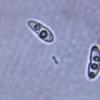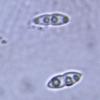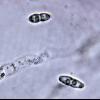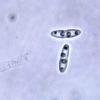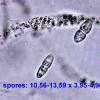
03-02-2026 20:44
Zetti MarioWhen I first saw this white mould on an Agaricus s

18-08-2025 15:07
 Lothar Krieglsteiner
Lothar Krieglsteiner
.. 20.7.25, in subarctic habital. The liverwort i

02-02-2026 21:46
Margot en Geert VullingsOn a barkless poplar branch, we found hairy discs

02-02-2026 14:55
 Andgelo Mombert
Andgelo Mombert
Bonjour,Sur thalle de Lobaria pulmonaria.Conidiome

02-02-2026 14:33
 Andgelo Mombert
Andgelo Mombert
Bonjour,Sur le thalle de Peltigera praetextata, ne

31-01-2026 10:22
 Michel Hairaud
Michel Hairaud
Bonjour, Cette hypocreale parasite en nombre les

02-02-2026 09:29
 Bernard CLESSE
Bernard CLESSE
Bonjour à toutes et tous,Pour cette récolte de 2

01-02-2026 19:29
 Nicolas Suberbielle
Nicolas Suberbielle
Bonjour, Marie-Rose D'Angelo (Société Mycologiq

31-01-2026 09:17
 Marc Detollenaere
Marc Detollenaere
Dear Forum,On decorticated wood of Castanea,I foun
On 19 March 2021 I took some thin twigs of Ulex europaeus home for examination.
I found several perithecia of Lophiosphaera ulicis (Photo A and B). Nearby I found perithecia with long necks (1.3 mm long; 0.13 mm wide at the base).
After a few days, a resinous substance flowed from the ostiole. It was too hard to examine microscopically.
In the lower part of the perithecia I found asci with ellipsoid spores. They had 1 sept (slightly off centre) and are constricted there.
Who can help me, could this be Diaporthe or Chrysoporthe?
Many thanks in advance,
François Bartholomeeusen

These long-stalked asci and there apex are typical for Diatrypaceae. There, with those very long neck, I would directly have chosen for Peroneutypa. But Peroneutypa species have small, aseptate spores. At first sight no other genus seems to fit here.
All the best,
Bernard
Bonjour,
Espèce à comparer à Diaporthe eres. Ou en tout cas dans ce genre. Il arrive que les becs soient si longs.
Alain
Good afternoon Alain,
Thank you for your suggestion. Diaporthe eres is a good candidate. I found a description of D. eres on the internet (Huhndorf, S.A. 1992 and Wehmeyer L.E. 1933).
The dimensions of the spores are correct except mine are wider (possible effect of measurements on herbarium material?).
In attachment some pictures of the last examinations. I have the impression that the spores take on a different shape with each examination.
Because the two parts of the spores are not always the same I thought of Apioporthe but that seems to be a synonym of Diaporthe. Sometimes I think I see short appendages at the poles of the spores.
My choice is D. eres if the substrate is not a problem.
Thank you very much Alain and Bernard,
François Bartholomeeusen

Spores typical Diaporthe indeed. But the young long-stalked ascus on the left on that misleading photo 6, on which my comments were based, certainly does not belong to Diaporthe.
Bernard

